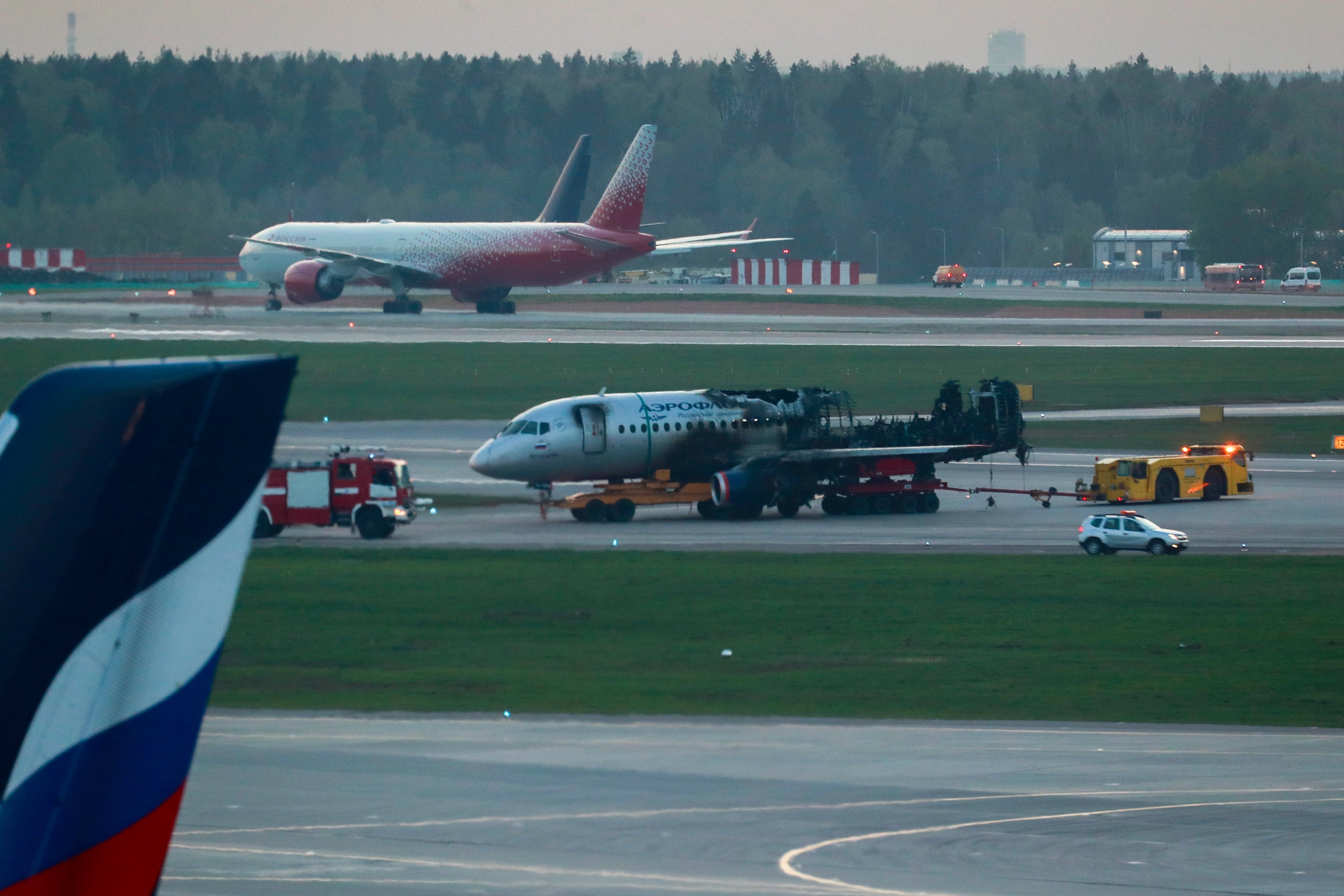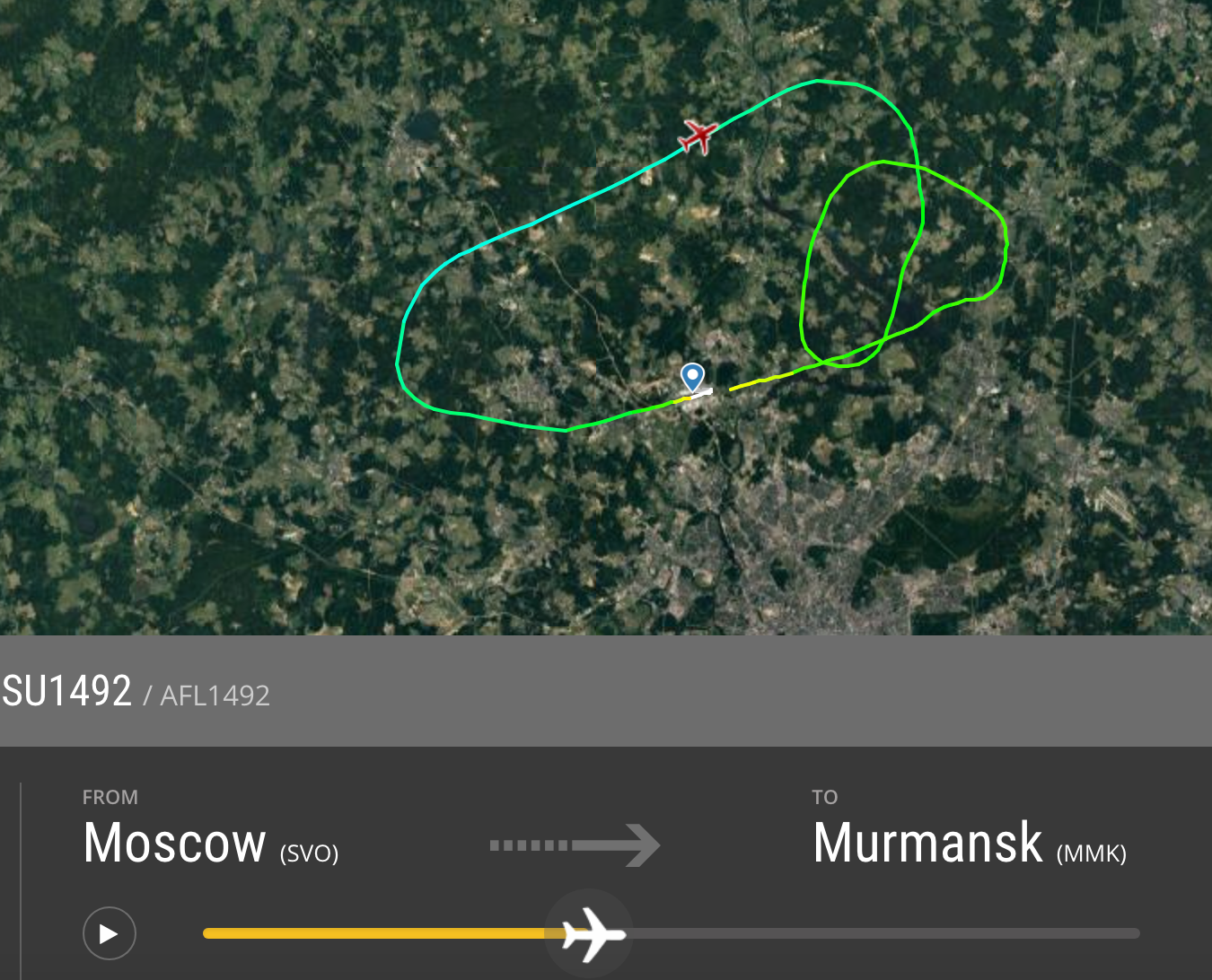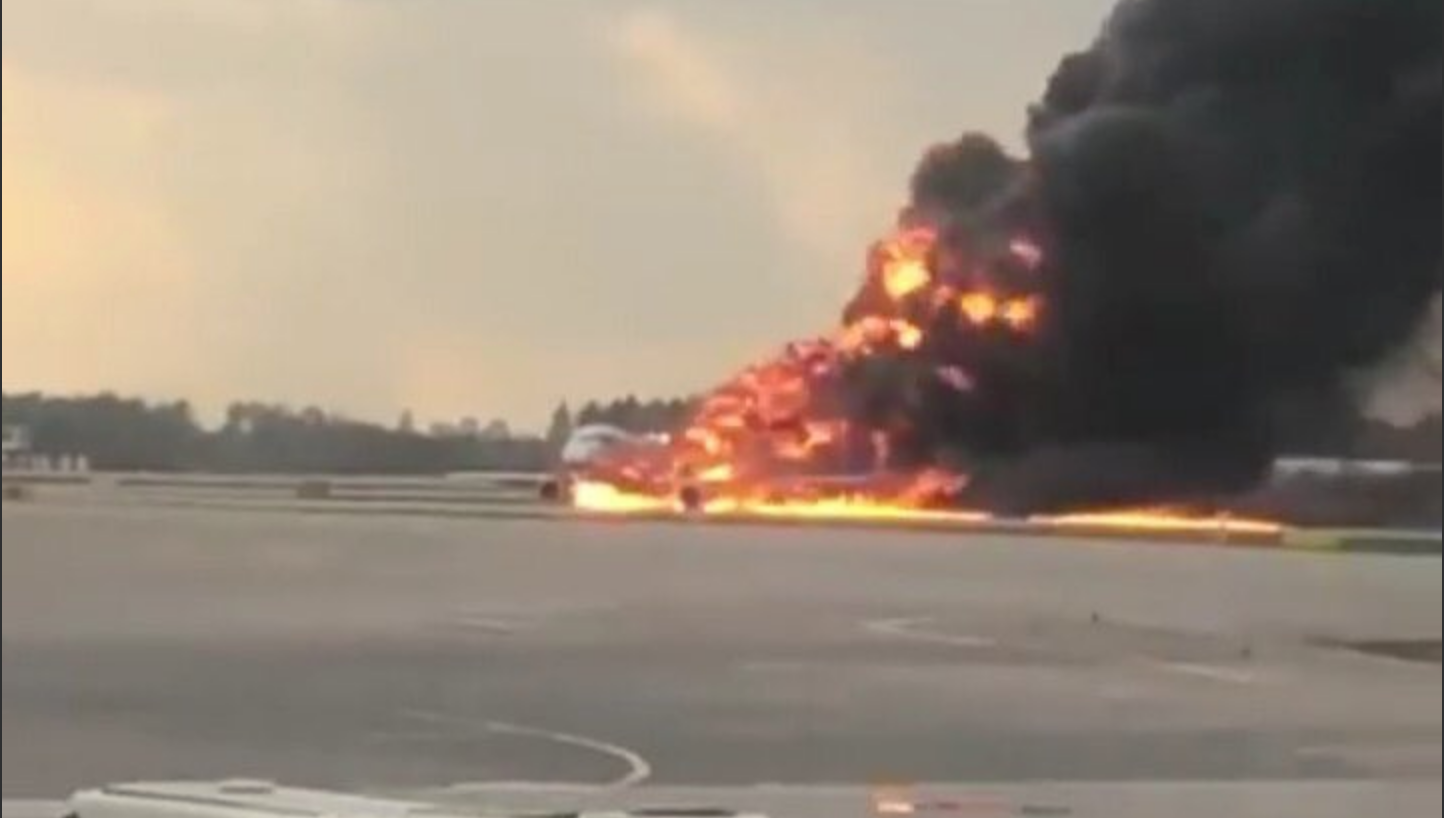What We Know About the Crash of Aeroflot Flight 1492
Shortly after takeoff Sunday evening from Moscow's Sheremetyevo airport (SVO), Aeroflot flight 1492 declared an emergency and attempted to return to the airport. The flight, operated by a two-year-old Russian-built Sukhoi Superjet 100 with the registration RA-89098, had 78 passengers and five crew members on board and was bound for Murmansk, Russia (MMK).

The Russian Investigative Committee is reporting that 41 people including one crew member were killed when the plane made a hard landing, bouncing and skidding down the runway before becoming engulfed in flames.
The pilots of flight 1492 declared an emergency almost immediately after takeoff according to Russian news agency Interfax, though the crew stopped responding by radio after reporting the emergency.

Interfax also reported that a lightning strike caused the loss of communication and forced the emergency landing, though at this point it's unclear what exactly caused the plane to crash. The plane appeared to catch fire only once it was on the ground, suggesting the possibility a rough landing may have caused the engines to scrape the ground and leak fuel. A report in the New York Times noted that flames could be seen on the pavement, suggesting that leaked fuel was burning.
Aeroflot has 49 Sukhoi Superjet 100s in its fleet. The regional jets can seat up to 87 passengers, with 12 in first class and 75 in economy. The aircraft has been in service since 2011, with about 150 produced to date.
While the Superjet has a relatively clean safety record, there have been concerns about Russia's first post-Soviet era passenger plane since it was first introduced in 2008. According to The New York Times, dozens of employees at Sukhoi's Siberia plant were found to have faked their university engineering degrees. The entire fleet was grounded in 2016 after Russian officials found metal fatigue in the tail section of a Sukhoi jet, a problem usually associated with older aircraft. A Superjet crashed in Indonesia in 2012 during a demo flight, killing all 45 aboard, in what was determined to be an accident largely due to incorrect actions by the captain.

Aeroflot has played many roles in aviation since its founding in 1923, including operating all civilian, military and agricultural aircraft for the former Soviet Union. Now Russia's flag carrier and largest airline, it has worked tirelessly to clean up its image and safety record since a pilot allowed his son to sit at the controls of an Aeroflot Airbus A310 in 1994. The son accidentally disengaged the autopilot, causing the plane to crash and killing all 75 people on board.
For the latest travel news, deals and points and miles tips please subscribe to The Points Guy daily email newsletter.
TPG featured card
at Capital One's secure site
Terms & restrictions apply. See rates & fees.
| 5X miles | Earn 5X miles on hotels, vacation rentals and rental cars booked through Capital One Travel |
| 2X miles | Earn unlimited 2X miles on every purchase, every day |
Pros
- Stellar welcome offer of 75,000 miles after spending $4,000 on purchases in the first three months from account opening. Plus, a $250 Capital One Travel credit to use in your first cardholder year upon account opening.
- You'll earn 2 miles per dollar on every purchase, which means you won't have to worry about memorizing bonus categories
- Rewards are versatile and can be redeemed for a statement credit or transferred to Capital One’s transfer partners
Cons
- Highest bonus-earning categories only on travel booked via Capital One Travel
- LIMITED-TIME OFFER: Enjoy $250 to use on Capital One Travel in your first cardholder year, plus earn 75,000 bonus miles once you spend $4,000 on purchases within the first 3 months from account opening - that’s equal to $1,000 in travel
- Earn unlimited 2X miles on every purchase, every day
- Earn 5X miles on hotels, vacation rentals and rental cars booked through Capital One Travel
- Miles won't expire for the life of the account and there's no limit to how many you can earn
- Receive up to a $120 credit for Global Entry or TSA PreCheck®
- Use your miles to get reimbursed for any travel purchase—or redeem by booking a trip through Capital One Travel
- Enjoy a $50 experience credit and other premium benefits with every hotel and vacation rental booked from the Lifestyle Collection
- Transfer your miles to your choice of 15+ travel loyalty programs
- Top rated mobile app


